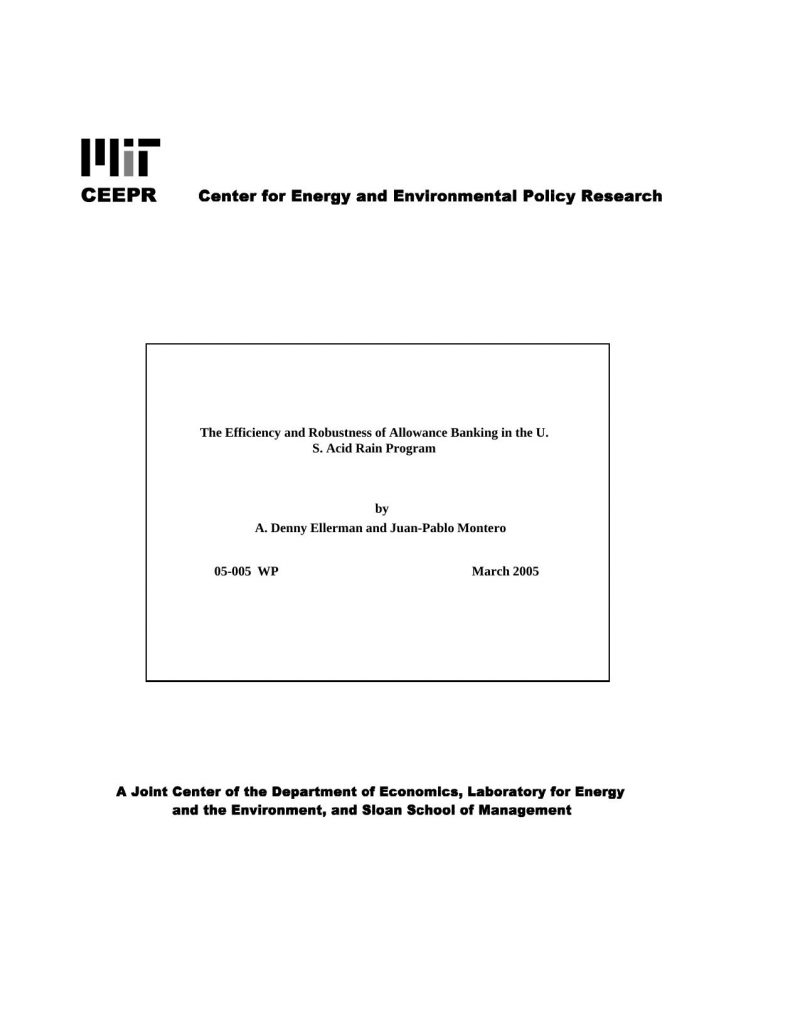The Efficiency and Robustness of Allowance Banking in the U.S. Acid Rain Program
A. Denny Ellerman and Juan-Pablo Montero
05-Mar
This paper provides an empirical evaluation of the efficiency of allowance banking (i.e., abating more in early periods in order to abate less in later periods) in the nationwide market for sulfur dioxide (SO2) emission allowances that was created by the U.S. Acid Rain Program. We develop a model of efficient banking, select appropriate parameter values, and evaluate the efficiency of observed temporal pattern of abatement based on aggregate data from the first eight years of the Acid Rain Program. Contrary to the general opinion that banking in this program has been excessive, we find that it has been reasonably efficient. We also show that this optimal banking program is robust to the errors in expectation that characterized the early years of this program; however, this property is due to design features that are unique to the U.S. Acid Rain Program.



